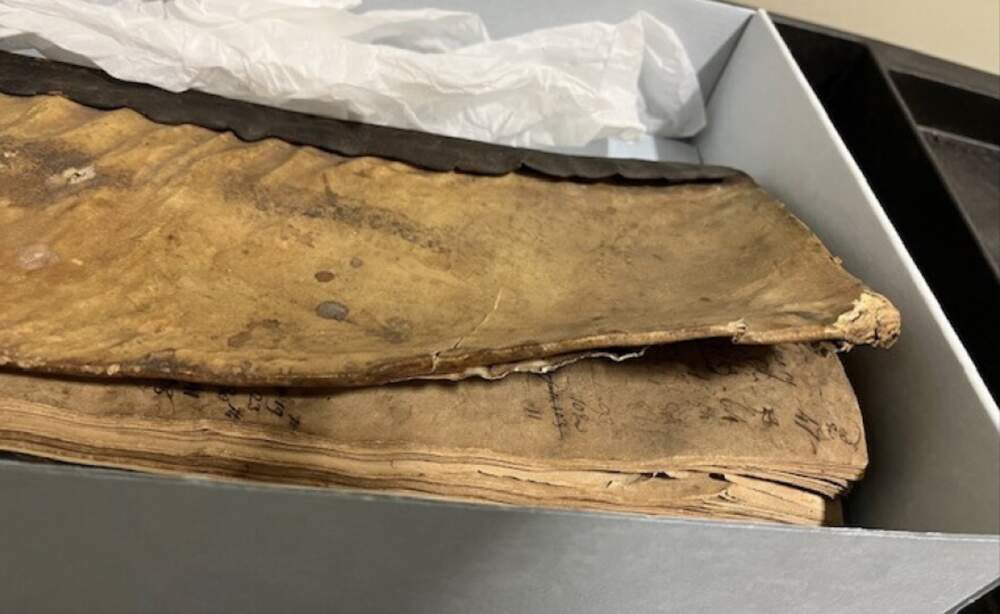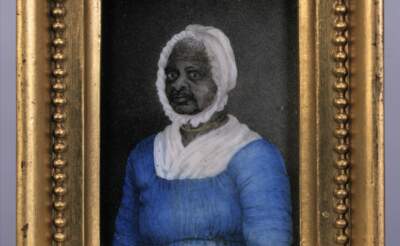Advertisement
Digitizing record books may give details on enslaved and freed Black community in the Berkshires

Three 18th and 19th century record books that include the names of at least fifty Black people who lived in the Berkshires are about to be digitized.
The books are part of the Trustees of Reservations collection from the historic home museum of John and Hannah Ashley in Sheffield, Massachusetts. John Ashley had served as a colonel in the Revolutionary War. He owned several businesses and enslaved at least five people.

One of them was known as Mumbett or Bett, who was brought to the Ashley house as a teenager. She later changed her name to Elizabeth Freeman after suing for, and winning, her freedom in August 1781.
Alison Bassett is the manager of the archives and research center of the Trustees. She said once digitized, the 700 pages from these books could provide details to historians about other Black people in Sheffield.
"We don't really know much about the enslaved and the newly-freed community living out in the Berkshires," Bassett said. "Sort of like breadcrumbs, you find one name and you try and trace where did this person travel to, especially once they got freed."
The books include the names of people who purchased things from the Ashley's businesses, along with what was purchased and the price. They also include the names of those who worked for the family, including enslaved people and those who had gained their freedom.
One of the books includes entries from 1758 through 1818 — covering the period of the American Revolutionary War, along with the time when Freeman was enslaved by the Ashleys, and after her trial.
Bassett said the account books are too fragile to handle. A grant from the National Endowment for the Humanities will pay for digitizing them. The process includes removing the binding from each book, and bathing the pages to remove acid, which is damaging them.
Advertisement
The NEH grant is for more than $344,819. It will pay to conserve these books, along with archives from the Boston Natural Areas Network which include community gardens that date back to 1977.
This story is a production of the New England News Collaborative. It was originally published by new England Public Media.